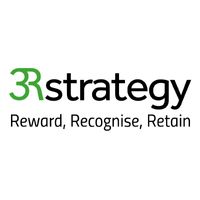Why 95% of your recognition strategy is failing your culture
Every organisation claims to have values. They're usually hung on office walls, featured in annual reports and recited during inductions.
Yet most employees couldn't tell you what 'innovation' or 'integrity' actually means in their day-to-day work.
This disconnect between stated values and lived experience is where workplace cultures fail - and where strategic recognition can bridge the gap.
What defines workplace culture?
Culture isn't about the words we use - it's about the consistent actions we demonstrate. It's the collective behaviours of our people that, over time, become "the way we do things around here."
But here's the challenge: how do we ensure those behaviours align with our organisational aspirations?
Author and public speaker Simon Sinek argues that values shouldn't be single words open to interpretation.
Instead, they need to be descriptive - painting a clear picture of what good looks like.
For instance, rather than simply stating "innovation" as a value, we might say: "We encourage calculated risks, learn from failures, and celebrate creative problem-solving at every level."
This clarity transforms abstract concepts into observable behaviours.
Suddenly, employees know exactly what's expected and, crucially, what deserves recognition.
The recognition-culture connection
Here's where most organisations miss a trick.
They treat recognition as an afterthought - a nice-to-have that sits separate from their cultural ambitions.
But recognition is actually the mechanism through which values become behaviours, and behaviours become culture.
When a colleague proposes a bold new approach that doesn't quite work, recognising their innovative thinking reinforces that taking calculated risks is genuinely valued.
When we publicly appreciate someone for admitting a mistake early, we embed a culture of transparency.
The key is making these connections explicit.
Building a successful recognition strategy
Meaningful recognition follows clear principles:
- Timeliness matters: Waiting for an annual review to acknowledge great behaviour dilutes its impact. Recognition should happen in the moment, when the connection between action and value is clearest.
- Authenticity trumps process: Our people can sense forced recognition. When recognition is genuine and specific about which behaviour demonstrated which value, it resonates far more deeply.
- Inclusivity drives engagement: The vast majority of cultural reinforcement happens through everyday interactions—a quick thank you, an email copying someone's manager, or a shout-out in a team meeting. These moments—accessible to all managers—shape culture more than any awards ceremony.
Making it personal
Understanding your people transforms good recognition into great recognition. Some thrive on public acknowledgement. Others prefer a quiet word.
A £50 Amazon voucher might be convenient, but £50 worth of books from their favourite independent bookshop shows you truly see them.
This personalisation extends beyond preferences to timing and context.
Recognising a working parent's creative solution to a complex problem while juggling school pick-ups acknowledges their whole self, not just their output.
From theory to transformation
The organisations getting this right don't view recognition as a bolt-on initiative.
They embed it into their daily operations.
Managers are equipped not just with budgets but with the skills to spot and celebrate values-aligned behaviours.
Regular discussions explore what their values look like in practice across different teams and contexts.
Most importantly, they measure what matters.
Not just participation rates in recognition schemes, but whether employees feel their contributions are valued and whether the recognised behaviours align with stated values.
When recognition genuinely connects individual actions to organisational values, something powerful happens.
Values stop being words on walls and start being the stories we tell, the behaviours we celebrate, and ultimately, the culture we create together.
Supplied by REBA Associate Member, 3R Strategy
We help you attract and retain your people through a fair and equitable approach to pay and reward.








